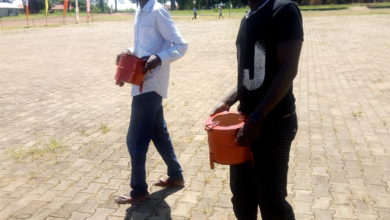
Environment
Uganda: Use of Renewable Energy Sources Still A Night Mare Among Gulu Residents-Survey
The residents revealed that traditional energy sources are easily affordable. Charcoal and firewood cost between UGX 35,000 to UGX 45,000 for a full sack and not more than UGX 10,000 for ten bundles respectively.
Majority of residents in Northern Uganda cannot afford Renewable Energy Sources according to a mini survey Oyengyeng Publication has taken.
Jesse Johnson James, a Northern Uganda Correspondent did the survey;
The residents prefer traditional energy sources for domestic uses over renewable energy sources over availability and affordability, some of them told our correspondent.
The survey was conducted within Gulu, which is Northern Uganda`s major town due for an uplift to a city status.
It was discovered that several households on daily occasions use charcoal and firewood compared to biomass, biogas, and hydro power, solar, briquettes and geothermal.
The residents revealed that traditional energy sources are easily affordable. Charcoal and firewood cost between UGX 35,000 to UGX 45,000 for a full sack and not more than UGX 10,000 for ten bundles respectively.
Jimmy Komakech, a resident of Vanguard parish in Pece Division said he is aware that renewable energy sources are environmentally friendly but he cannot afford to buy one at his home.
He said he tried opting for a solar panel to light his home but could not afford to buy it as he is financially incapacitated.
A full set of a solar panel cost between UGX 50,000 to over 1 million depending on its Watts. Meanwhile the cheapest gas cooker is a 6kg which goes for UGX 150,000 and a refilling fee of UGX 50,000.
Robert Ojok Mone says he uses firewood and charcoal for cooking at home because he cannot connect to electricity since it comes with much expense including wiring, licensing and equipment purchase.
He emphasised the need for reduction in the cost of the renewable energy sources if it is to attract massive users. And that the masses need to be sensitized about the advantages of renewable energy.
Twenty two year old, Oliver Atimango`s family has never owned a renewable energy source. She told Oyengyeng News that with the little she knows about renewable energy, it helps in reducing forest depletion.
“It can help the environment since it reduces the rate of forest depletion as a way of searching for energy sources for cooking.” Said Atimango
“Renewable energy can also help the local community who are deep in the rural areas where electicity wires havbe not yet reached.” She went on
Arthur Owor, an environmental activist in Gulu attributes the use of traditional energy sources by the local to ignorance and lack of an energy policy, a barer that needs joint effort to combat.
“Because of the lack of a coherent energy policy, there is still a lot of ignorant on the side of the users of energy. Most of us here are still using firewood and charcoal for cooking.” Owor explains
Bernard Lakony is a resident of Layibi Division in Gulu Municipality. He sells a kilogram of his homemade briquettes at UGX 800. He told Oyengyeng that there is poor reception of briquettes by the locals due to their little knowledge on the advantages of using it for cooking.
Lakony said briquettes are long lasting, smokeless and clean. He called the government to scale up sensitization on renewable energy.
Center for African Research estimates that, 70 percent of the total population in Northern Uganda uses charcoal as their primary energy source.
According to a 2017 Rural Electrification Agency report on up take of renewable energy sources in rural areas stands at 4 percent while the 2018 Statistical abstracts by Uganda National Bureau of Statistics (UBOS) says access to electricity increased from 20 percent in 2015 to 22 percent in 2017.
Despite the increase, rural areas are the least underserved with electricity connections as the total installed capacity of electricity power sources increased by 5 percent from 895.5 MW in 2016 to 937.8 MW in 2017.




